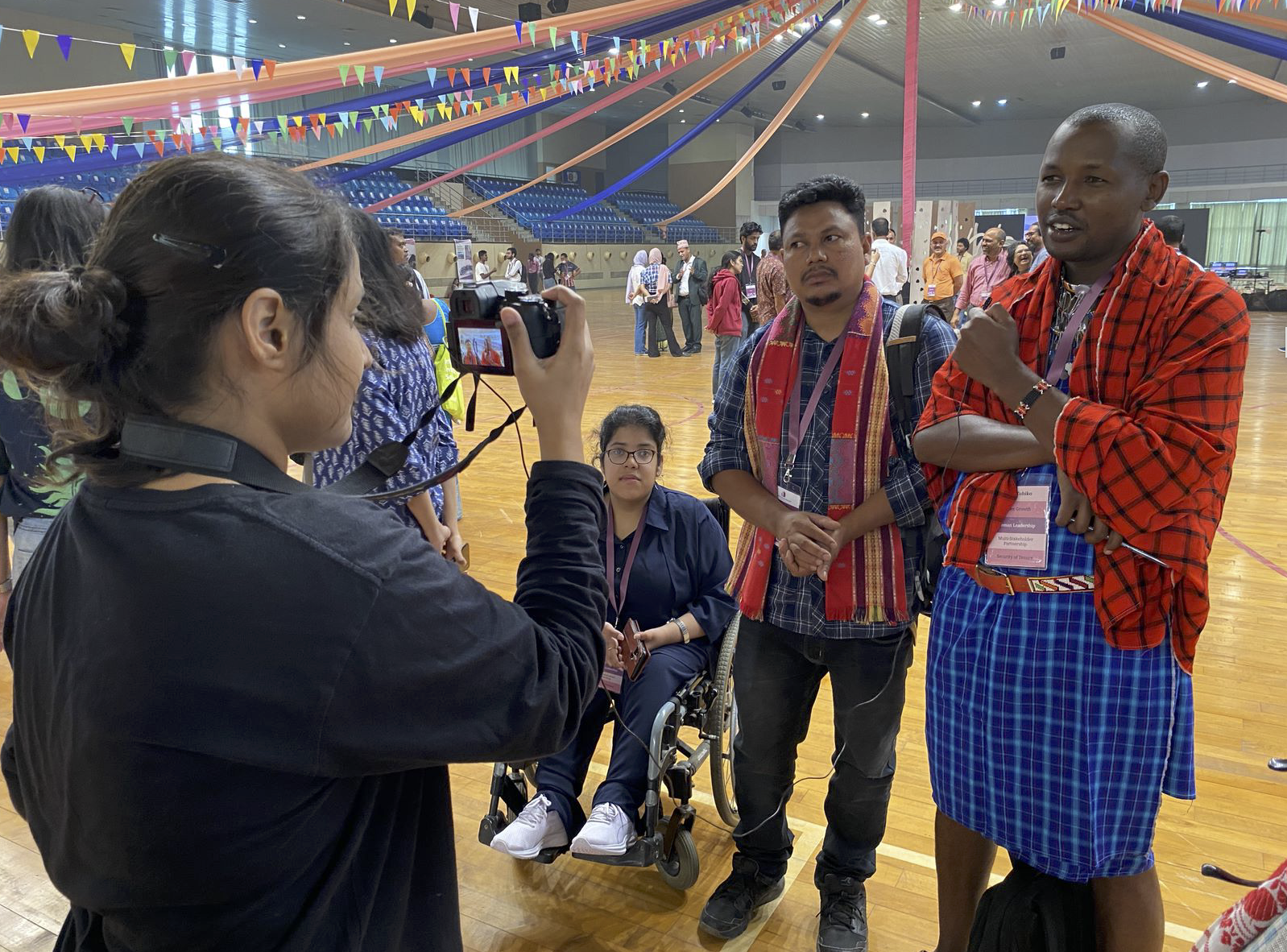2023-11-02
The international event draws indigenous representatives and civil society actors from across India and 30 other countries.
Protecting forest ecosystems from exploitation requires ground-up action and continued cooperation between Indigenous Peoples and local communities, participants said during an International Learning Exchange (ILEX) taking place in New Delhi.
Emotions ran high as participants from 18 Indian states and around 30 countries engaged in discussions about threats to indigenous communities. These range from shifting policy attitudes to logging, mineral extraction, and conservation efforts that overlook the rights of Indigenous Peoples and traditional communities.
“This exchange is about sharing our learnings while being protective of the forests for generations, and sharing the challenges, the stories of hope, and the endeavors for recognition of rights and cohesion for environmental protection,” said Shweta Tripathi, executive director of the Society for Rural, Urban and Tribal Initiative (SRUTI).
“It is very important we move from the household level to the village, to national level and to international forums like this,” said Isaac Tobiko, executive chair of Community Land Action Now! (CLAN) in Kenya, one of the international participants. “It is not about being an expert, it is about being a learner.”
“We need a global movement that is people-driven and not expert-driven,” he said, recalling the recent learning exchanges in Africa supported by Tenure Facility were about mobilising local support and sharing those experiences.

Dialogue and cooperation
The theme of the ILEX, ‘Radical Forest Futures’, focuses on exchanging ideas and building on grass-roots efforts to address risks to strengthen land tenure rights or reverse efforts to weaken them. It was organised by the Policy Development Advisory Group, the Indian School of Business (ISB ), SRUTI, Vasundhara, the School of Planning and Architecture in New Delhi, and the AJK Mass Communication Research Centre, Jamia Millia Islamia, in New Delhi. Tenure Facility is a finance partner of the ILE.
Representatives of indigenous communities in Brazil and Nepal, as well as India, where Tenure Facility has a footprint, were present.
Organisers stressed the importance of dialogue and cooperation among all stakeholders to address challenges facing indigenous communities’ land rights as well as the urgency of combating climate change. The three-day event began on 2 November.

It was a dynamic opening day of presentations as well as discussions between participants and Delhi University students from different disciplines, including development communications.
All participants were invited to pin messages on a ‘wish tree’. The messages reflected both the importance of such gatherings, the desires of Indigenous Peoples to play a role in addressing climate challenges, and the threats to their land rights.
“All men and women should come together to help the forests, not just the people at the top,” read on message from a participant from India’s Odisha State. “It should be the people in the indigenous communities who care for their resources, not the people in power.”
“Our existence comes from the forest and in the forest we will find the future of our existence,” read another, highlighting the importance of conserving the forests and indigenous communities in the fight against climate change.
Another, from the southern Tamil Nadu region of India, reflected the emotional nature of some discussions at the ILEX: “Don’t soil our land, forests and natural resources. We need people power and ownership rights.”
The ILEX is one of the numerous exchanges and learning events held in 2023, including recent ones in Indonesia, Kenya, and the Democratic Republic of Congo.
Articles